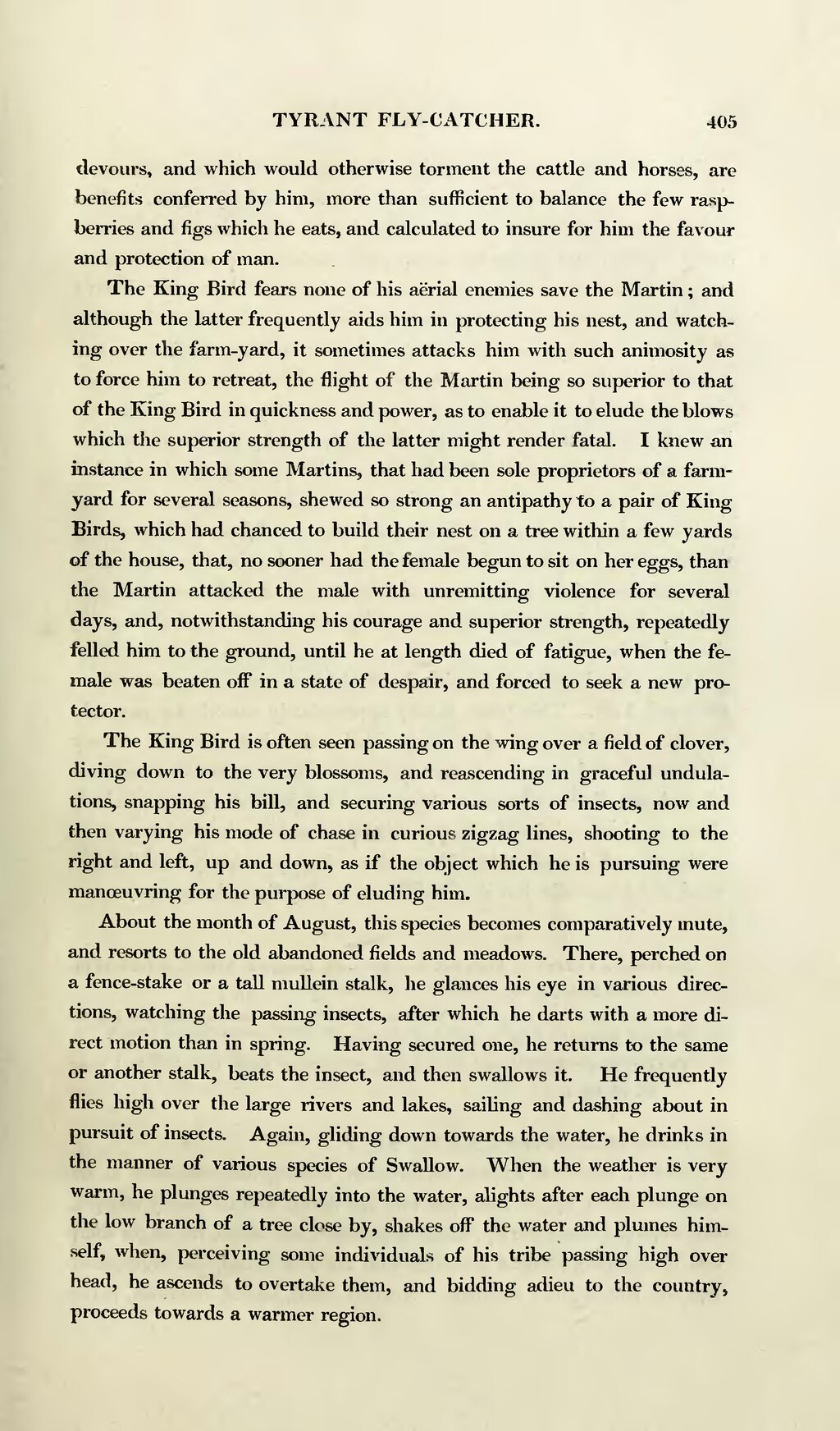devours, and which would otherwise torment the cattle and horses, are benefits conferred by him, more than sufficient to balance the few raspberries and figs which he eats, and calculated to insure for him the favour and protection of man.
The King Bird fears none of his aërial enemies save the Martin; and although the latter frequently aids him in protecting his nest, and watching over the farm-yard, it sometimes attacks him with such animosity as to force him to retreat, the flight of the Martin being so superior to that of the King Bird in quickness and power, as to enable it to elude the blows which the superior strength of the latter might render fatal. I knew an instance in which some Martins, that had been sole proprietors of a farm-yard for several seasons, shewed so strong an antipathy to a pair of King Birds, which had chanced to build their nest on a tree within a few yards of the house, that, no sooner had the female begun to sit on her eggs, than the Martin attacked the male with unremitting violence for several days, and, notwithstanding his courage and superior strength, repeatedly felled him to the ground, until he at length died of fatigue, when the female was beaten off in a state of despair, and forced to seek a new protector.
The King Bird is often seen passing on the wing over a field of clover, diving down to the very blossoms, and reascending in graceful undulations, snapping his bill, and securing various sorts of insects, now and then varying his mode of chase in curious zigzag lines, shooting to the right and left, up and down, as if the object which he is pursuing were manœuvring for the purpose of eluding him.
About the month of August, this species becomes comparatively mute, and resorts to the old abandoned fields and meadows. There, perched on a fence-stake or a tall mullein stalk, he glances his eye in various directions, watching the passing insects, after which he darts with a more direct motion than in spring. Having secured one, he returns to the same or another stalk, beats the insect, and then swallows it. He frequently flies high over the large rivers and lakes, sailing and dashing about in pursuit of insects. Again, gliding down towards the water, he drinks in the manner of various species of Swallow. When the weather is very warm, he plunges repeatedly into the water, alights after each plunge on the low branch of a tree close by, shakes off the water and plumes himself, when, perceiving some individuals of his tribe passing high over head, he ascends to overtake them, and bidding adieu to the country, proceeds towards a warmer region.
